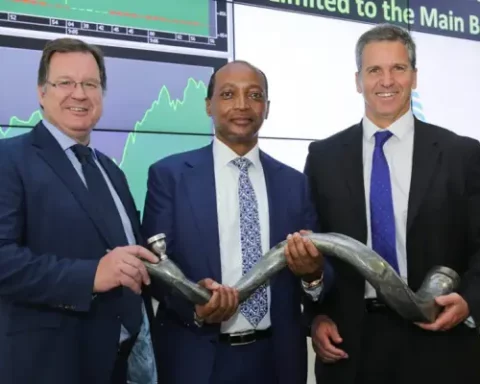There’s nothing quite like a crisis for creating opportunity. And it seems the world of enterprise resource planning (ERP) is awash with crises. Inevitably, because it is the world’s largest vendor of ERP software, SAP is involved in many of those calamities.
Precisely what sort of role SAP plays depends on who you speak to. Safe to say, SAP has as many detractors as it has defenders.
The most recent high-profile SAP-related crisis was of, course, Spar. The South African grocery and drinks wholesaler has taken an estimated R1bn-plus hit to its profits over the past two financial years because of the botched implementation of the SAP system at its KwaZulu-Natal (KZN) operation.
Ask around and most analysts will tell you about the almost inevitable nerve-wracking, problem-dogged SAP implementations experienced by other retailers. But none quite as bad as Spar.
It turns out Spar wasn’t just high profile in the South African context, it was high profile on a global scale. So much so that a US-based independent ERP systems consultant has taken the opportunity presented by Spar to promote his own business, the Third Stage Consulting Group.
In a 14-minute video, the consultant, Eric Kimberling, describes the Spar case as “one of the biggest failures in the SAP space of the past few years”. He recounts how the wholesaler spent a “staggering” $100m on its SAP implementation, which resulted in massive failure. “More alarming and shocking [than the $100m spent] was that the company lost over $100m in sales that it directly attributes to its SAP project,” says Kimberling. “So, in theory, the project cost not just $100m but $200m and counting.”
R2bn lost turnover
Spar launched the SAP project in October 2022, slap in the middle of the run-up to the crucial Christmas spending period. Massive disruptions in the supply chain quickly became apparent as Spar’s independent retailers, who had relied on the KZN operations, were forced to order directly from manufacturers or independent suppliers.
Spar was forced to spend additional money on servicing KZN from warehouses in other provinces in an effort to ease the problem.
By the year to end September 2023, the company had suffered an estimated R2bn in lost turnover and about R720m in lost profit thanks to the botched implementation. But the problems didn’t end there.
Spar CEO Angelo Swart, who was appointed to the top job midway through the crisis, tells Currency the negative impact on profitability continued in 2024, but he’s loath to give details. “The knock to profit was significant but not as bad as in 2023,” he says.
Swart feels Kimberling, who didn’t have access to any inside perspective, is a little glib in his conclusions as to what went wrong, and says it was an extremely technical process. The independent consultant’s conclusions are essentially that you really need to understand your own business processes and what it is you want to achieve before launching into an SAP implementation project. And he reminds us that “the people side of the equation is also important”.
The obvious suggestion is that Spar’s team wasn’t ready. This will not be news to anyone who has tracked Spar’s dramatic history over the past four or five years. In early December 2023 the gaffe-prone company informed shareholders about a whistleblower’s attempt to alert the board back in October 2021 about potential difficulties with the SAP project. None of the three directors who received this warning acted on it.
In May 2023, when the difficulties had become apparent, the whistleblower contacted the company to find out why the warning had not been acted upon. The board, which had been largely overhauled by then, hired a law firm to investigate the matter. The three directors, who have since left the company, were found to have breached the Companies Act and their fiduciary duty.
Though there has never been mention of fraud in the multibillion-rand SAP debacle, Spar did reveal that a member of management had introduced a consultant involved with the SAP project to the company. That executive did not declare to the company that he was friends with the consultant.
On that point it might be worth watching a second video by Kimberling, “The End of Big Consulting”, in which he talks about extensive conflicts of interest between the big consulting firms and the big ERP vendors.
Surviving SAP
No doubt, in highlighting Spar’s SAP woes, Kimberling is pushing his own agenda, and he may not have added much to an understanding of the situation. But as one analyst tells Currency, his emphasis on just how prepared you must be to implement the system was informative and should help any future clients. “It’s also amazing the extent to which the ‘switch-over’ is manual,” says the analyst.
The good news for Spar and all its stakeholders, one commentator notes, is that “if a company can survive an SAP implementation, it can survive anything”. And it seems Spar has survived. Indeed, it has survived not only an SAP implementation but, almost simultaneously, the divestment of a major business operation (Poland) and extensive changes to its executive management team and board.
“It took longer than we’d expected to correct the issues,” says Swart, acknowledging management decision-making challenges around the “go-live” process. The extremely decentralised nature of Spar’s business may have complicated the situation.
But now KZN is up and running entirely on SAP and has been profitable for the past four months, says Swart. The rollout across the group is expected to take two years and, whatever Kimberling’s reservations, SAP is set to remain Spar’s ERP system of choice.
SAP did not immediately respond to a request for comment.
Sign up to Currency’s weekly newsletters to receive your own bulletin of weekday news and weekend treats. Register here.









